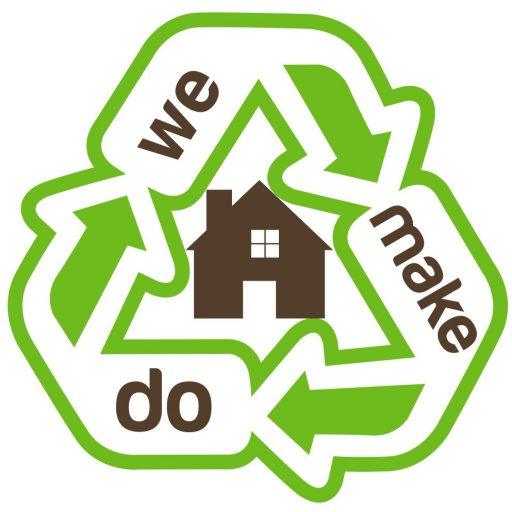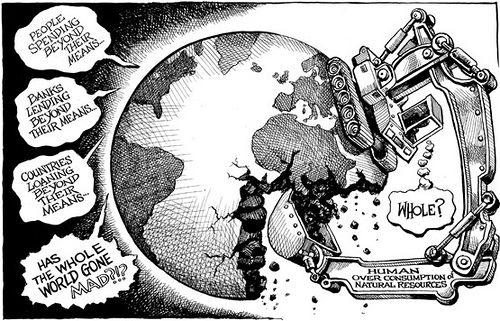
by wemakedo | Nov 9, 2018 | community, health |
By now I think most of us have at least seen headlines related to the recent IPCC update on climate change which describes the impacts of further global warming. To add to this, more recently, the World Wildlife Federation (not to be confused with the wrestlers) released their latest 2 yearly report on the state of our wildlife. Both of these reports are truly shocking in the facts that they present. And it should be noted that although there is some opinion included, these reports are summaries of the best factual data we have on our current situation. If people need more evidence of the sorry state of our global environmental health, it’s all here.
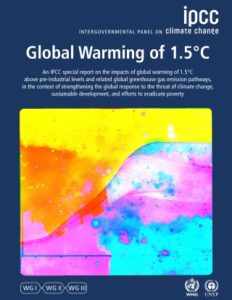 And let’s be honest with ourselves – in both reports the current situation and the prognoses are both presented as dire situations.
And let’s be honest with ourselves – in both reports the current situation and the prognoses are both presented as dire situations.
And these are not the kind of “dire” situations where for example, jobs are lost or economies are down turning or prices are rising or a storm is coming or some of the other crisis events that preoccupy our media all the time. This is on a whole other level, like the destruction of the planet level. I don’t know whether humanity has ever before knowingly faced such a huge imminent problem and responded with such an apparent lack of urgency.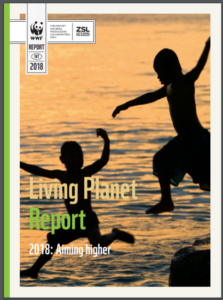
Is this sinking in at all?
For those who are perhaps climate change sceptics or merely indifferent to it all, and feel that consequences that are still years away are not to be taken too seriously, then the WWF report makes our situation clear and the cause of this situation even clearer. The report directly blames our consumption habits: “Runaway consumption has decimated global wildlife, triggered a mass extinction and exhausted the Earths capacity to accommodate our expanding appetites”
As the head of the WWF declares ominously in the report, “we are the first generation to know we are destroying our planet and the last one that can do anything about it”.
Why are we not all talking about this with the urgency it deserves ???
Why is our media not saturated with more discussion on this?
For some perhaps these are just yet more of the same kind of reports that preach doom and gloom, and that we need to do our best to not get dragged down by. But for those who are listening to the message contained here, there is a lot to be very worried about now and alot that we should be taking far more drastic action on.
We are clearly in a crisis situation that we are either paralyzed to act on or simply too self-absorbed to even notice despite the very clear warnings we are now getting.
It seems like most of us are hearing this message and choosing to believe that life will just go on as normal, the way it always has. Perhaps we are tending to make a subconscious decision that we can’t affect this with our individual habits anyway or that if it really was such a big deal wouldn’t our government be taking more radical action on this on our behalf?
This thinking is starting to look very foolish and delusional.
Mrs Wemakedo has recently gone back to school for some new learning on environmental engineering and so she has been reading a lot of the latest thinking on the state of the environment and latest efforts to mitigate our destructive impacts. So we have been discussing some of these concepts at home a little more and let’s just say that a quiet air of foreboding has begun to set in for us.
On some level, it’s consoling at least to see the huge amount of investigation, analysis and planning that is taking place in various fields of industrial and commercial activity to try to get a handle on the environmental side effects of our economic activity. But this seems minuscule in comparison to the huge momentum already built up by the destructive methods we have engaged in unchecked for so long now.
The latest IPCC report is attempting to put in clear terms what needs to happen to avoid near certain disaster for much of the world’s population. It lists climate-related risks to health, livelihoods, food security, water supply, human security and economic growth. That pretty much covers a lot of what we consider important in life, so maybe we should listen harder this time? Avoiding these catastrophic scenarios will require far-reaching and unprecedented changes in society!!
The WWF report is equally stark. Since 1970, we have now wiped out an estimated 60% of all creatures with a backbone (vertebrates) due to our unrelenting destruction and pollution of the environment.
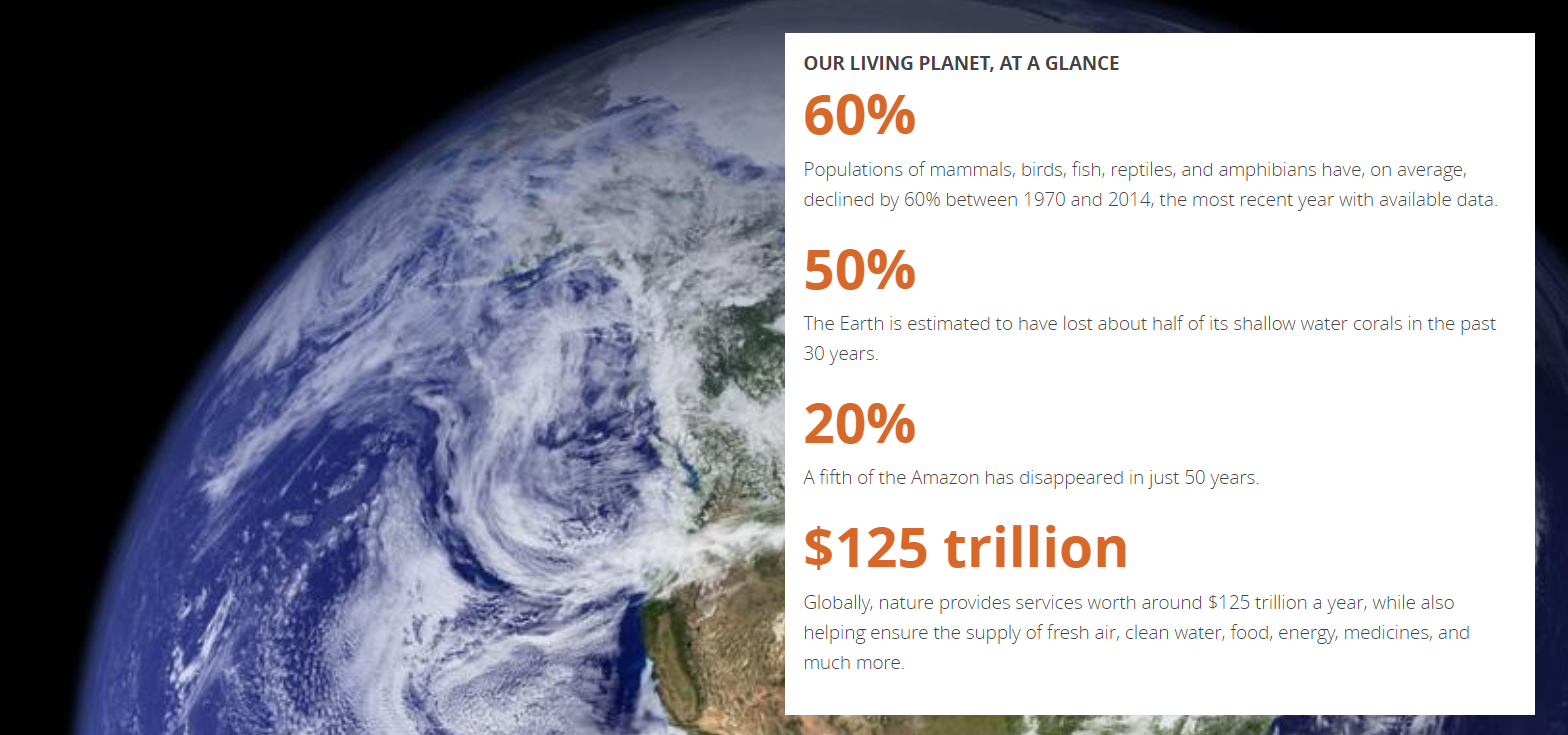 A little background on the IPCC report: this report was commissioned in 2015 after the Paris Climate Accord when it was not really clear what would happen if the world were to limit the global temp increase to 1.5C above pre-industrial temperatures (before 1900) versus limiting it to 2C. This report was requested to go figure out the real world scenarios in both cases.
A little background on the IPCC report: this report was commissioned in 2015 after the Paris Climate Accord when it was not really clear what would happen if the world were to limit the global temp increase to 1.5C above pre-industrial temperatures (before 1900) versus limiting it to 2C. This report was requested to go figure out the real world scenarios in both cases.
It doesn’t sound like much but keep in mind we are now (2017 data) believed to be at about 1C higher (within 0.8 to 1.2C (– high confidence)) already and accelerating! Some climate scientists are adamant that we are even higher if a less conservative analysis is applied to the available temperature data.
The CO2 level is not static or even slowly rising – this is actually ACCELERATING according to the latest data collected.
The report makes it clear that if we stopped emitting CO2 now, that is, immediately went to a zero Carbon society across the globe, that the impacts of what we have done will persist for decades and likely millennia in the form of environmental damage. If you pause and think about this it’s very worrying in itself…but then consider how well we are doing at slowing this down for the future.
It’s simply not happening.
As one researcher said “we are sleepwalking to a disaster with climate change”. And here is where the really concerning findings occur.
If we were to limit the damage to the scenario of a 1.5C increase then we would have to be at zero Carbon output by 2050!. That’s dropping from the highest CO2 output levels we have ever experienced to zero in just over 30 years!
The report estimates that we will reach 1.5C above pre-industrial levels (from the current 1C) by somewhere between 2030 and 2052.
So in the next 12+ years, we will see the far more serious consequences of this unchecked behaviour.
Let’s take an example from the report to get some idea of what this could mean. At the 1.5C mark, it is estimated that we lose 70 to 90% of the worlds coral reefs…that’s 90%!.
At 2C, this goes to 99%. No more coral reefs.
For many of us, it’s hard to identify with this as we likely won’t suffer much directly from having no more coral reefs – those pretty features favoured by underwater documentary makers. But to say that we might just be about to permanently kill them all off without much of a second thought is distressing. For those with children, imagine how you would explain this to your kids….”yeah, we knew it was happening but didn’t seem bothered enough or organized enough about it at the time to do enough to stop it”.
The report even mentions the use of extreme “geoengineering” as one possible solution to be considered given the dire situation we face. A quick internet search reveals that this is not a new concept to try to tackle the problem but is one that is now being mentioned more frequently as those in the know realise that this intractable problem looks to be one that is just that – intractable. We really just can’t seem to help ourselves.
One of the geoengineering ideas floated is to fill the clouds with Sulphur to mimic what happens after major volcanic eruptions when sulphur dioxide is ejected into the atmosphere and converts to sulphuric acid which is then able to reflect back lots of sunlight leading to a large temperature drop. It has worked during previous large-scale eruptions so could possibly be made to work artificially. However as these articles point out, if this could be done and if it was to work, this would only buy some time to fix the underlying CO2 generation problem but if you stop doing this engineering without having changed the background CO2 problem then the sudden temp change would have “disastrous effects” on our climate. It’s a last resort option to avoid the 2C temperature rise scenario, and one that needs a lot more figuring out, but maybe we need to start thinking in terms of last resorts now.
ref : https://earther.gizmodo.com/the-machines-that-could-darken-the-sun-to-stop-climate-1825452265
The world is full of legacy systems and methods that have been handed down to us as “the way things are done”. Knowing the way to do things from our predecessors allows us to go further and make progress in different areas without having to spend time relearning the basics. It’s how we progress
But then we also know the benefits of being able to disrupt the status quo with innovative thinking – take for example the prestige associated with an entrepreneur realizing that they can achieve some economic output in a far better way than before. These people are our modern day heroes.
Shouldn’t this disruptive spirit be channelled more urgently towards this crisis situation we face?
We have adopted some truly terrible ways of doing things that we seem to be unable to even acknowledge, much less be bothered trying to disruptively change them. Unfortunately, there are many agents who are incentivized to ensure that you don’t think too hard about some of these behaviours and question the methods that have been handed to you as, simply, “the way things are done”.
Think about the way cigarettes were sold to the public and how long it took before the medical evidence was able to break through the momentum this industry had built up on the back of high profits.
Think about the way cars are sold to us as, electronics and so much of the other crap we digest at increasing rates.
Think about the consumption of non-essentials in general. The only model we know seems to be to sell more stuff to more people to make more money. Where is this approach leading us? These reports are laying that destination our clearly for us now in ever more dramatic terms.
We should not be so naïve as to think that the way we are shown to behave by those with strong incentives, is in any way aligned with our best interests. And it would seem that we don’t yet see how closely our own best interests and the environment’s best interests are intertwined. If we were being trashed by hurricane storms with increasing frequency in Ireland would we start to wonder more about why this was happening? Woud we thne feel the need to take more personal action on our daily habits?
Where has our critical thinking gone in order to be able to see what is going on around us at a time when it’s not possible to hide all this evidence any more
Recently we watched a BBC documentary about the damage being done by the fashion industry. It was shocking for two reasons. The first reason was that it has extremely high levels of chemical pollution associated with its processes which seem to be going unchecked and at the same time that industry has managed to trick us into wanting new clothes at much faster rates than before…
so what you may say? many industries have managed to quietly pull this trick on society with their own particular play on our needs and insecurities.
But what was really shocking is how well the fashion industry seems to have managed to keep this one out of the limelight. At least for us as we watched it, we were shocked to realise how bad that industry really is while maintaining a relatively clean image. Remember when we became aware that some clothing companies were using child labour to make clothes, and how quickly public pressure came to bear to try to stop that practice?
Well, all the while the clothing production companies have been quietly trashing their local environments while helping eager high street buyers stay “up to date”. This documentary is worth a watch if you need some more shocking evidence of why a seemingly benign industry is, in reality, doing horrendous damage… second only to transport in the level damage that it does (link)
Taking time to look around, the environment seems like just one of the many problems we face. But as these two reports are clearly telling us, we need to stop ignoring or underestimating the severe consequences of what we are doing to the planet. If there is a solution to this it lies in our individual habits….no self-interested government is going to fix this. On a local level, people may have forgotten that improvements that get made by governments only come about in response to public demand. The urgent change needed will only happen through people taking their own actions to change.
We must realise that the effects of the environmental damage we are doing are no longer far removed from us in the first world. We are in a crisis that now needs an individual response. As both these reports make clear, we are at the point where we may be the last generation that can possibly do enough to reverse this.
We’ve heard the message again and again. How much more convincing do we need?
We shouldn’t need to be forced to act in the best interests of our future.
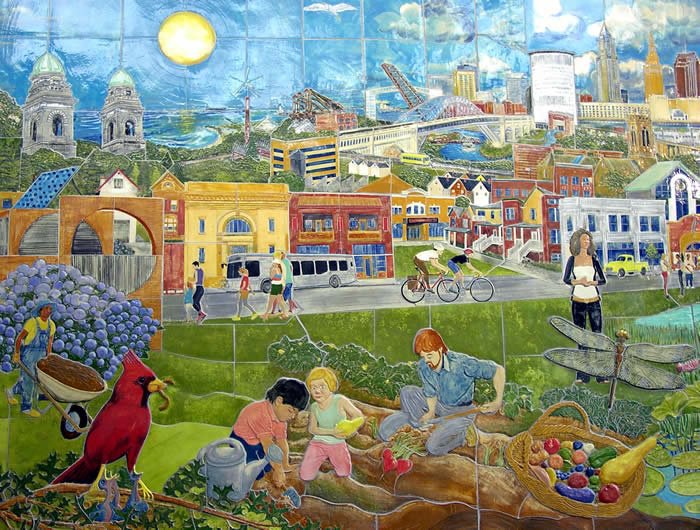
by wemakedo | Nov 10, 2017 | community |
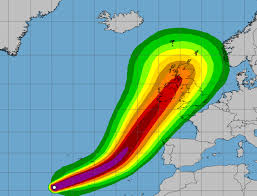 Our recent brush with the formidable Hurricane Ophelia and then a week later with the more colloquial sounding storm “Brian”, may have shaken our thinking that nothing very seriously bad ever happens in little ol’ Ireland.
Our recent brush with the formidable Hurricane Ophelia and then a week later with the more colloquial sounding storm “Brian”, may have shaken our thinking that nothing very seriously bad ever happens in little ol’ Ireland.
We are used to watching TV footage of storm-ravaged homes and people whose lives have been turned upside down in areas we typically associate with hurricanes, earthquakes and other natural disasters. But maybe now we can feel a little more empathy towards those situations and realise that natural disasters are perhaps something we should give a little more thought to in this part of the world.
Our WeMakeDo family philosophy has at times swung from the milder form of doing what we can to limit our harmful impact on the world to sometimes more extreme thoughts of how would we fare in the event of an extreme disaster where some degree of self-sufficiency may become very important.
The Normalcy Bias – sometimes also called the ostrich effect – is an effect that biases people’s thinking when faced with the prospect of disaster. We all tend to have this bias to varying degrees which dictates that things will continue to be normal because they have always been normal. This bias can come into play when we face a potential disaster situation and try to plan accordingly. The bias will tend to make us think things will never be as bad for us as we know it can be for others.
In true Irish fashion, before Ophelia struck, there were jokes going around about how Guinne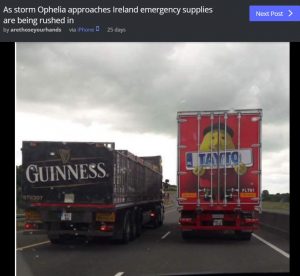 ss and Taytos were all that was needed to weather it out. Maybe we just are that relaxed about things but perhaps there was some Normalcy Bias at play. It can result in way over-optimistic interpretations of warnings as well as an inability to cope well when faced with real disaster situations when they do occur.
ss and Taytos were all that was needed to weather it out. Maybe we just are that relaxed about things but perhaps there was some Normalcy Bias at play. It can result in way over-optimistic interpretations of warnings as well as an inability to cope well when faced with real disaster situations when they do occur.
Ophelia has been a striking example of why we should acknowledge that this kind of event can happen here. We should not assume we won’t experience disaster just because we have never really experienced it in recent memory.
Watching the aftermath of the storm unfold was interesting. It would seem that other than some specific tragic incidents during the storm, the broader population was merely inconvenienced by this storm. Our family like so many others lost our power, but only for a day and our water supply for the same time (as we are on a well). Others around us lost their power for a week and daily life for those families was certainly tough for those few days. What was eye-opening is how truly helpless we can be when we lose centrally supplied power or centrally supplied water. The loss of internet access in our home for a day was difficult enough!
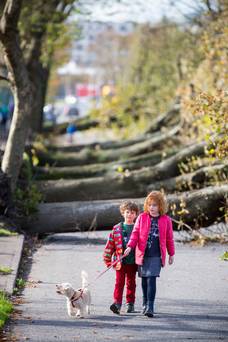 Power was slowly restored and roof tiles were replaced and life went on for those of us less impacted by the storm. But should we give a little more thought to how well set up our current way of life is for dealing with large-scale disaster?
Power was slowly restored and roof tiles were replaced and life went on for those of us less impacted by the storm. But should we give a little more thought to how well set up our current way of life is for dealing with large-scale disaster?
It’s not so much that we should expect to have to deal with large storms like this on a more regular basis although this may become a feature of our altering climate; its more that we have become very dependent on centralised supplies in our modern lives. Our normalcy bias has us believing that this way our highly inter-dependent society is now set up is not at risk at all. We generally don’t even give it a second thought.
Assuming normalcy means that we assume there will always be a supermarket to get our food, water will always come out of the tap, and our lights will always turn on when we flip the switch.
The purpose of this article is not to suggest that we should introduce paranoia into our daily lives but perhaps we should give some thought towards how we could manage in the event of minor emergencies or disaster situations and how we can improve either our self-reliance or our local reliance. We should not assume that the government or the free market will always be able to provide for us in crisis events and believing this may be quite naive.
Through pursuing economies of scale and profit, big business has slowly been changing how our communities acquire goods and services and also who is able to provide these goods and services. Food supply is obviously an important aspect of a resilient community. Most of us are aware of how large supermarket chains squeeze small food suppliers out of existence. Thankfully in Ireland, it seems there is no shortage of small food producers who by their existence, add a high degree of resilience to our communities.
Other concepts which can help build community resilience and strengthen connections:
- Food co-ops where people buy produce in bulk and distribute it amongst members of the community who join up.
- Local currency initiatives – such as the Kilkenny “CAT” which was proposed in 2010 but doesn’t seem to have happened or the thriving local versions in some UK cities like the Bristol Pound and Liverpool Pounds, which serve to encourage money circulation within local enterprises and communities.
- Lending libraries are a relatively new concept in Ireland and have started in Dublin: the same concept as book libraries only for other household items such as tools, garden equipment etc. The kind of things many of us only need occasionally and so can be better shared rather than owned with little use.
- Well attended farmers markets which incentivise local producers to meet local needs.
- LETS or Local Exchange Trading Systems which relies on credits and not currency to exchange skills and resources. This bartering system allows for people to trade skills and provides a useful outlet for people with skills to trade for other needs. Cork has such a system set up: Cork LETS Network
Another thought we had when we lost our power for a day was: for people who like to figure things out for themselves, how much of the wealth of online knowledge do we actually retain so that it might be of use to us if the electricity supply failed for a significant period of time. The WeMakeDo family love to try fixing things making use of the wealth of online guides and resources now available, but one wonders how much of that knowledge do we retain? With no power (and no internet) one wonders if one could figure out how to make, for example, a manual well pump to get a supply of water?
It’s not likely that our lives would ever depend on figuring this out, but it’s food for thought.
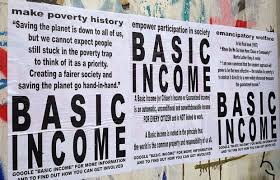
by wemakedo | Sep 8, 2017 | community, family |
This concept of a Universal Basic Income for all has been doing the rounds for a long time now and re-emerges regularly when some newsworthy person or other decides to be an advocate. Recently Mark Zuckerberg (Facebook CEO) delivered a commencement speech to US Harvard graduates in which he called for “exploring a system of wealth distribution known as Universal Basic Income”. And so followed a renewed flurry of commentary about this groundbreaking concept and how it might work. Or how it could never work.
The WeMakeDo family has been trying for some time now to experiment with tightening up our household annual costs and at the same time considering how we would live if we were to stop living off salaries from for-profit companies. Mrs WeMakedo started her own business a few years ago (the Babymarket.ie) which has been thriving but is not sufficient to sustain us yet. Mr WeMakedo has been considering ending his salaried position of 20 years simply because it no longer meets any of the higher order needs that can become more important to us as we get older.
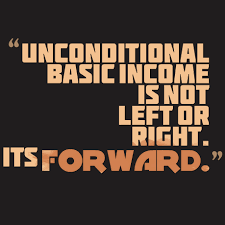
You know that itch of the soul that starts to become harder to scratch as routine and monotony starts to kick in. Working for someone else can get a little wearisome and usually change is a good thing to bring upon ourselves.
A regular salary is nice and comforting but it can be detrimental to your motivation and creativity. Unless you are one of the lucky few who love what they are salaried to do, then its seems there is a limit to how much enthusiasm one can continue to generate for someone else’s agenda when they are paying you to do it. Some would say that a regular salary is the best way to stifle creativity and ingenuity. As the insightful author Nassim Taleb (author of “The Black Swan”) has said, “The three most harmful addictions are heroin, carbohydrates and a monthly salary”.
Of course one has to be practical too and ensure that family needs that we determine to be important, can be, and will continue to be met. But in a society where self-worth has become strongly attached to one’s “career” position and one’s outwardly displayed signs of high income, we are in danger of losing sight of what really satisfies us. And when you start to figure that out, then if a salaried job isn’t in some way aligned with those sources of satisfaction, then it needs to be seriously delivering in other ways to make it continue to be worthwhile.
For some people, that satisfaction may truly come from driving an expensive car to work at a company where we feel our position also commands respect from peers. But for some, this career path we are sold may turn out to not bring that deeper satisfaction we are craving. For some like myself, it just seems to take longer for the realisation to occur and then for some decisive action to follow.
Universal Basic Income is the idea that a government will pay every citizen some guaranteed regular amount to live-on so that their basic needs can always be met. It is not intended as a means to allow people to live without contributing to society. In fact, the model intends (and some evidence suggests) that by being freed from the stress and/or monotony of having to find a way to meet one’s basic needs, it will allow for larger sections of society to engage in fulfilling and still productive activities. The model assumes that the societal gain from this approach to funding people’s basic cost of living should outweigh the direct financial costs of funding the UBI.
At its most basic, UBI will lift a large section of society out of poverty. With this approach, everyone will have enough money to live to a basic standard. The UBI also may also help growing populations deal with the emerging trends in industry which suggest that as automation and artificial intelligence take hold, there will be fewer manual or menial jobs available for the population in general.
What will the masses do if there are no factories to get mind-numbing work in? Well, they’ll probably figure out better ways to use their time. Happier people should lead to improved general well-being, health and community engagement.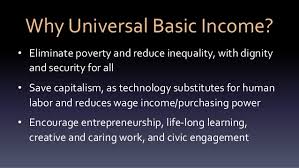
Some would argue that the free market model we currently follow in the capitalist world will force those in need of a salary to survive by whatever means is available to them, to become more inventive about how they meet their needs. But it’s hard to see how this forced creativity can be as good for society as a whole (or as enjoyable) as the unforced creativity afforded by the presence of a basic income in a UBI society.
The question of where the funding for the Basic income comes from seems somewhat contentious. In most proposed versions, taxes are raised to do this. Thus, a large scale redistribution of wealth would take place, from those who can afford to pay which is then used to stimulate the less well-off in society. In this model, it is expected that those less well-off people will now tend to put more of the (UBI) wealth back into the economy and thereby grow it significantly. In other words, after the initial shock of the increased taxes subsidies, the overall economy will grow significantly to the point where the tax burden of providing UBI is no longer felt as a burden.
All well ‘n good if you’re not part of the wealthy section of society that will feel like it has to pay for this experiment. But there is a well researched economic thesis that suggests that as the wealthy in society become more wealthy, they are stifling economies by hoarding this wealth. As they control more and more and prefer not to spend it (in order to stay wealthy), this tends to have a dampening effect on the economy.
We currently try to get around these stagnating economic scenarios by the use of “stimulus” packages such as we have seen in many countries since the 2007 financial crisis. Most often this takes the form of government infrastructure spending on roads and bridges, thereby indirectly forcing large sums of money into circulation or, also by simply printing more money for banks to loan out to borrowers which tends to be used in the US economic model. These are also just different means of infusing a stagnant economy with large amounts of cash.
Is distributing this money to individuals to use for their basic needs that much different to what we are now doing in times of economic difficulty?
It is also argued by those against the UBI, that without the incentive to work, the majority of people simply won’t do anything. And the funny thing here is that many of us tend to think that “of course I would want to be productive, but its those other (insert some adjective to describe those we think of as inherently lazy) who wouldn’t bother”.
Actual test cases of the UBI in action have shown that very small reductions in the numbers who want to work are observed and in some cases an increase in numbers takes place.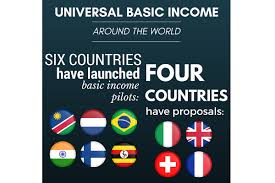
The truth here is that we all need to feel valued and to feel we contribute to our social circles in some way. And so small experiments in use of UBI have already shown that the numbers of those being productive will tend to go up rather than down once basic needs are met. The difference with a basic income in place is that the life-happiness measures go up a lot when the choices for how you make your contribution not hampered by the need to earn a salary from them.
Imagine how much more creativity we would see in such unrestricted societies?
For lots of info on what is happening to progress the Universal Basic Income movement, visit http://basicincome.org/
Now back to work.
For at least a little while longer.
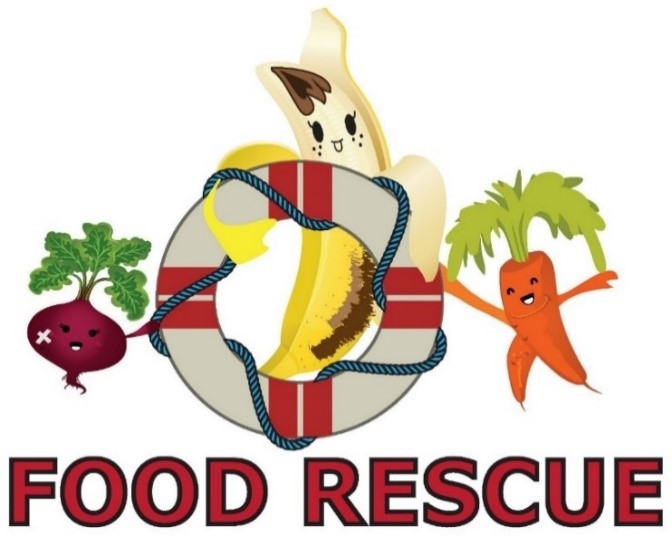
by wemakedo | Apr 10, 2017 | community, reuse |
Can you believe that estimates suggest that we are throwing away something like 30 to 40% of the food we produce globally! Amazing, when you consider the efforts that go into the use of chemicals and methods to enhance crop yields in order to boost production. It seems that there is way more food produced than we need to feed everyone if we stopped throwing so much of it away.
We wanted to share our experience with food waste reduction and our very first Food Rescue event!
As we’ve shown here, we started paying attention to our plastic waste and one thing leads to another and now we’re starting to keep a close eye on our food waste at home too. With 3 kids this can get out of control if one isn’t paying attention and it all part of wider intention to reduce our own waste and impact as much as we can.
Mrs Makedo recently became chairperson on the local primary school parents committee which our eldest girl attends. The main job at hand is to raise funds for the school. Traditional routes for fundraising seem to be hitting up businesses for raffle prizes, hitting up the locals for raffle tickets and hanging around outside the local church with a sign to hit up the churchgoers. These methods have been tried and tested and still work, but some new approaches could help the energy levels all round.
In a nice convergence of our waste philosophy and the need to raise funds for this new role, we got down to planning our first Food Rescue to raise some funds for the school.
If you haven’t heard, a Food Rescue is an initiative by Voice Ireland, an environmental group based in Dublin who ran the popular Feeding the 5000 Event. These events sprang from an acknowledgement of the huge volumes of food waste we generate. In particular food sellers are obliged to remove produce that is beyond the best- before date, but which is still perfectly fit for consumption. Similarly, funny looking veggies that are deemed too ugly to sell (in our world where appearance means a lot) can be rescued from the bin. Organizing an event where this food is rescued and used to cook up a tasty meal and bring people together to share it is known as a “Food Rescue”. And its purpose is to highlight the issue of food waste while using up some fine unloved produce to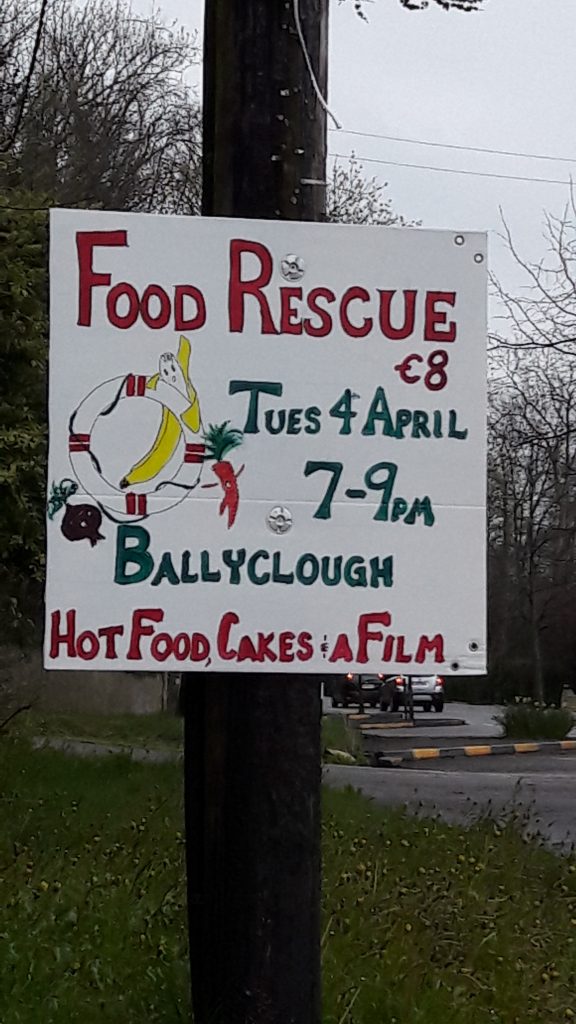 demonstrate it.
demonstrate it.
Mrs Wemakedo worked with Voice Ireland and put in several weeks of planning for the event which was held in our local community Hall on April 4th. A local high end restaurant chef (from Longueville House) was recruited to do the food preparation before the event. And we spent a few evenings handpainting some signs for advertising.
We did lots of cold calling supermarkets to see what sort of waste they have and how they could help, until we figured out that Food.Cloud have got this whole process streamlined to perfection. They have an extensive network throughout Ireland and have connected to all the supermarket chains to collect waste and find ways to use it through charities.
We found when we contacted them that they were ready to help in any way. They can source almost any kind of food at short notice and deliver to you for cooking – fantastic! Lots of successful Rescue events have been organized across the country for many years now so it’s a brisk business and one that appears to be having a great impact. People seem to know about this supermarket waste issue now. Household waste is a more personal problem and one that we can all probably do better with.
To add some variety to the event we included a viewing of the movie “Just eat it”. A very entertaining documentary about a couple who opted to live on waste food for 6 months, only spent $200 on food over that period and rescued about $20,000 from dumpsters. It has some very funny moments and is well worth a watch! We had a great response to this and people were very happy to sit through the 50 minute version. 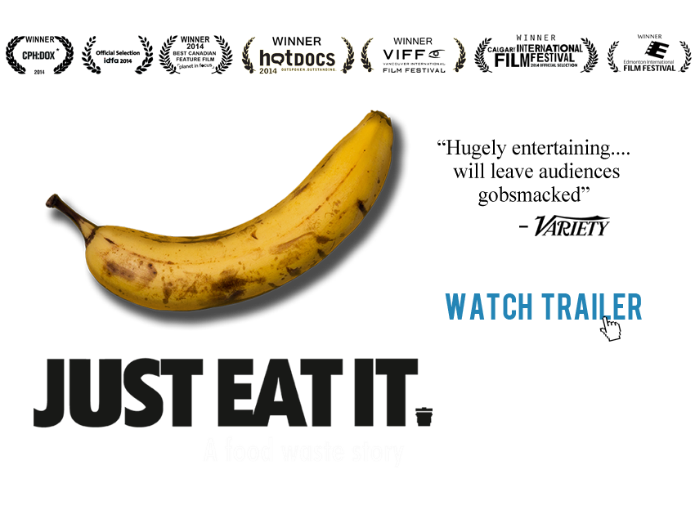
We also invited local composting expert Donal O’Leary from www.stopfoodwaste.ie along to talk to people about how to use food waste in beneficial way through composting it for your garden. He spent 30 minutes explaining all the reasons why keeping food out of landfill is important and the tricks to make it work for your garden.
The night went off really well.
Tons of super volunteers cooked cakes, provided tea/coffee to accompany the (rescued) main course and dessert and helped out with serving and clearing up. We had rescued biscuits, cheese and crisps also laid on. With an €8 charge on the door, the night attracted 80 or so guests and €600 euros was raised to help the school. We even had 2 couples attending who wanted to organize their own Food Rescues.
The Rescue idea has huge potential and with this first trial run, the hope is to make it an annual event. We were a little cautious with the food this first time round, but having seen how it all works and the excellent message it gives, we would hope to go much further with the rescued food on offer in future.
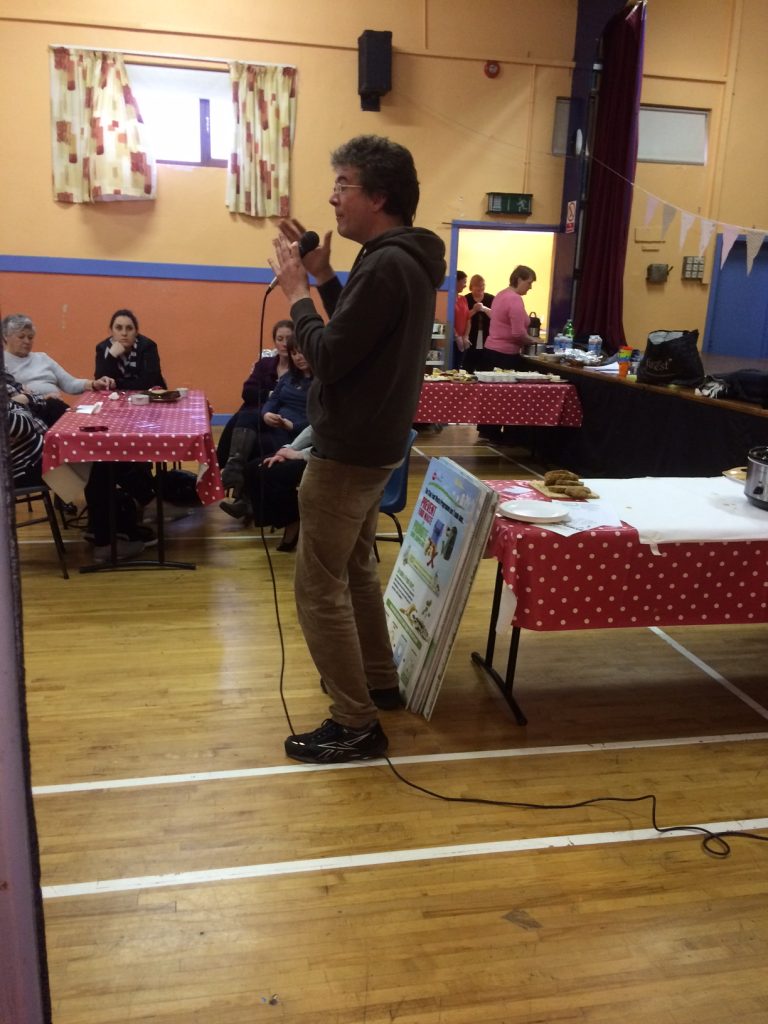
Donal O’Leary from www.stopfood waste discussing composting.
We were so busy on the night that we only took 1 picture. Here it is!
And if you’d like to organize your own Food Rescue, simply contact Mindy or Meaghan from Voice Ireland, and they’ll send you everything you need to get started!
Here are some interesting points about global food waste: (source – www.foodtank.com)
- 3 billion tons of food are wasted every year
- If wasted food was a country, it would be the third largest producer of carbon dioxide in the world, after the United States and China
- Just one quarter of all wasted food could feed the 795 million undernourished people around the world who suffer from hunger
- Food waste in rich countries (222 million tons) is approximately equivalent to all of the food produced in Sub-Saharan Africa (230 million tons)
- A European or North American consumer wastes almost 100 kilograms of food annually, which is more than his or her weight (70 kilograms)
- A European or North American consumer wastes 15 times more food than a typical African consumer
- Food waste in Europe alone could feed 200 million hungry people
Some related links:
www.voiceireland.org
http://www.stopfoodwaste.ie/
www.food.cloud/

 And let’s be honest with ourselves – in both reports the current situation and the prognoses are both presented as dire situations.
And let’s be honest with ourselves – in both reports the current situation and the prognoses are both presented as dire situations.
 A little background on the IPCC report: this report was commissioned in 2015 after the Paris Climate Accord when it was not really clear what would happen if the world were to limit the global temp increase to 1.5C above pre-industrial temperatures (before 1900) versus limiting it to 2C. This report was requested to go figure out the real world scenarios in both cases.
A little background on the IPCC report: this report was commissioned in 2015 after the Paris Climate Accord when it was not really clear what would happen if the world were to limit the global temp increase to 1.5C above pre-industrial temperatures (before 1900) versus limiting it to 2C. This report was requested to go figure out the real world scenarios in both cases.